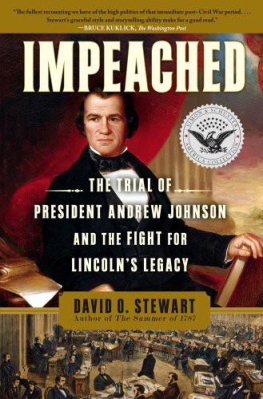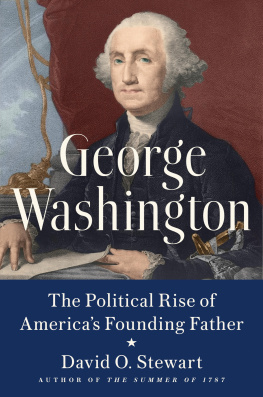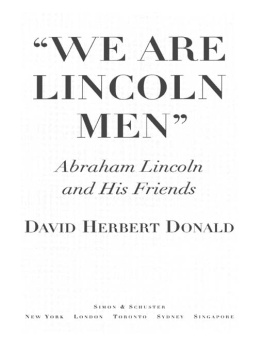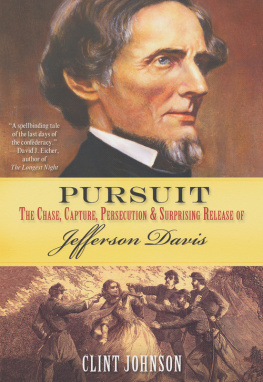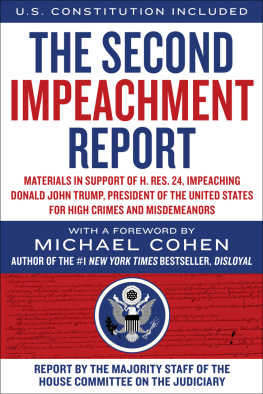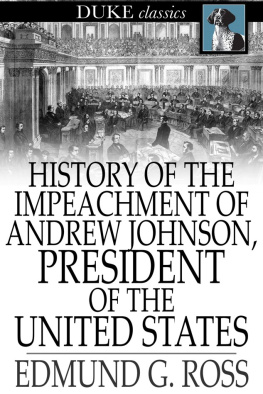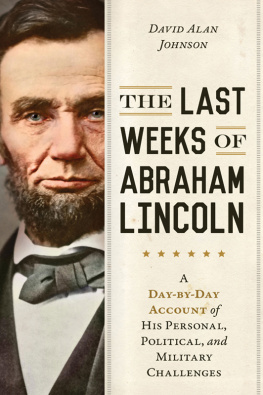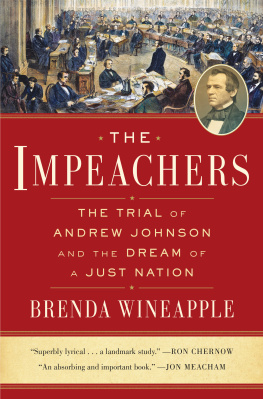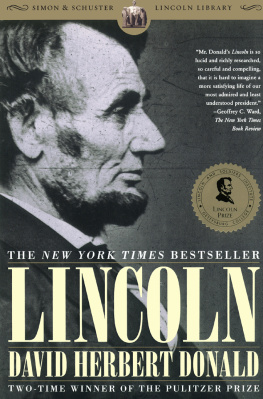ALSO BY DAVID O. STEWART
Copyright 2009 by David O. Stewart
All rights reserved, including the right to reproduce this book or portions thereof in any form whatsoever. For information address Simon & Schuster Subsidiary Rights Department, 1230 Avenue of the Americas, New York, NY 10020
SIMON & SCHUSTER and colophon are registered trademarks of Simon & Schuster, Inc.
All illustrations are courtesy of Library of Congress except photo of James Legate on Chapter 15, which is courtesy of The Kansas State Historical Society.
PREFACE
[T]his was no ordinary political crisis. It was not a struggle for office, or a contest about a tariff, but a dispute that followed hard on a terrible civil war. It was the reconstruction of the Union that was at issue.
G ENERAL A DAM B ADEAU, 1887
A FTER FINISHING The Summer of 1787 about the writing of the Constitution, I wanted to pick up the Constitutions story at its next critical moment. To form a union from thirteen quarreling states, the Philadelphia Convention patched together a number of rough compromises, prominent among them agreements about slavery and the allocation of power between the federal and state governments. Those political bargains held up for seventy years. During those decades, a web of accommodation and mutual forbearance bound the nation together. Three times, painful compromises over slavery kept the states united. Arguments over the powers of the sovereign states flared and subsided and flared anew. By 1861, contention over slavery and state powers overwhelmed the constitutional structure. Eleven Southern states seceded and fought a savage four-year war to be no part of the United States.
That war exposed fundamental flaws in the founding document. Slavery could no longer be papered over. It had to be abolished. The national governments power over the states had to be reinforced. A commitment to equality and the right to vote had to be embraced. From 1865 to 1870, the Thirteenth, Fourteenth, and Fifteenth Amendments remade the Constitution in those ways.
Yet the central constitutional drama of this critical era was not the prolonged battle over the new amendments. Rather, the nation came closest to tearing itself apart, again, during the impeachment struggle between Congress and President Andrew Johnson in the spring of 1868. Accused by the House of Representatives of eleven offenses (Articles of Impeachment), Johnson endured a lengthy Senate impeachment trial, escaping conviction and removal from office by a single vote.
I first studied Johnsons impeachment trial twenty years ago, when I defended Walter L. Nixon, Jr., a federal judge from Mississippi, in an impeachment case before the Senate. I needed then to understand what offenses constitute high crimes and misdemeanors under the Constitution, and thus support impeachment. Naturally, I turned to the Johnson case, the only presidential impeachment trial to that point. My study yielded mostly confusion.
The principal players in the case were unfamiliar: Congressmen Thaddeus Stevens and Benjamin Butler led the prosecution; in opposition were former Supreme Court Justice Benjamin Curtis and attorney William Evarts. The eleven impeachment articles, which were the indictment of the president, were impenetrable, even for a lawyer. The Senates rulings on legal issueswhat was a high crime or high misdemeanor, and what evidence could be heardwere inconsistent, even incoherent. Those seeking to drive Johnson from the White House were passionate, but the charges against him seemed technical and legalistic. The conflict focused on Johnsons attempt to fire his secretary of war. How, I wondered, could the president not have the power to do that? And yet Johnson almost was convicted on those baffling impeachment articles.
This time around, with greater time and study, I appreciated better how this confrontation grew from irreconcilable disagreements over how to reconstruct the nation after secession and civil war. Johnson was a Southern Democrat, elected on the Republican ticket in 1864, who became president because of the tragic assassination of Abraham Lincoln. Johnson took a narrow view of federal powers under the Constitution. Untroubled by gruesome racial violence in the South, or by the replacement of slavery with a brutal form of agricultural peonage, he wanted Union troops to withdraw quickly from the region. Sovereign Southern states, he believed, should be left to manage their own affairs.
Congress, overwhelmingly Republican and including no representatives from ten Southern states, disagreed. Congressional Republicans were enraged that former Confederates would be rewarded for their treason by swiftly regaining control over their states. Most Republicans wanted power in those reconstructed states to be reserved to men who had been loyal to the Union. They insisted that the freed slaves must be protected from white violence. Many wanted the freedmen to have the vote so they could elect state governments that would treat them fairly.
As the dispute between Johnson and congressional Republicans grew more rancorous, constitutional questions became central. Johnson insisted that he was defending the Constitution as it is, preserving the original vision of the Founding Fathers. Congressional Republicans insisted that the Constitution, and the Union, had to change. When Congress resorted to its ultimate constitutional weapon against the presidentimpeachment and removal from officecalls to arms rang through the North and South. The nations future hinged on whether impeachment would work well enough to prevent a plunge back into civil war. Could the Constitution mediate this fierce battle within the government itself? When the nation slid into civil war in 1861, the Constitution was no help. Would it perform any better seven years later?
This was a great testing for the Constitution and the nation. For many years, the conventional telling of the impeachment story portrayed it as a hairsbreadth escape from congressional despotism. By this traditional account, the presidency survived because a few heroic Republicans in the Senate refused to join the vengeful Northern harpies who hated Andrew Johnson for attempting to heal the nations wounds. That conventional view is a cartoon version of the actual struggle, and ignores much of the historical record. As president, Johnson inflicted many more wounds on the nation than he healed, while votes for his acquittal were purchased with political deals, patronage promises, and even cash.
Andrew Johnson was an unfortunate president, an angry and obstinate hater at a time when the nation needed a healer. Those who opposed him were equally intemperate in word and deed. It was an intemperate time. The tempests of the Civil War still triggered high emotions. Yet Johnsons opponents, often described as demonic impeachers, defended the principles of fairness and equality that represent the finest parts of the American tradition, which they also were fighting to incorporate in the Constitution. The impeachment process proved cumbersome and exasperating, but ultimately achieved exactly the goal for which the Framers of the Constitution designed it: the peaceful resolution of a grave national crisis.

